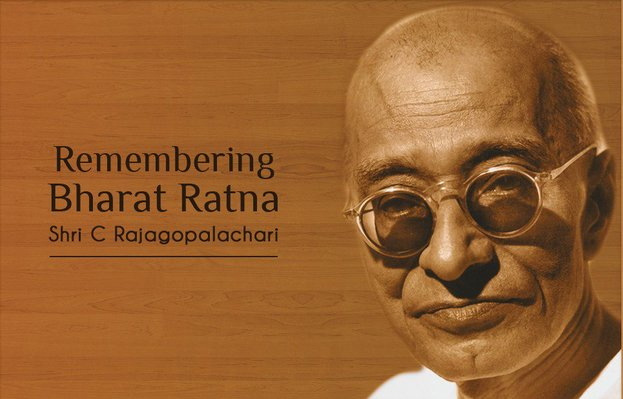Chakravarthi Rajagopalachari: 6 Remarkable Contributions to India’s Political Landscape
Chakravarthi Rajagopalachari, often fondly called ‘Rajaji,’ was one of India’s foremost leaders and a key figure in the nation’s political and social landscape. From a distinguished career in the Indian National Congress to his pivotal role post-independence, Rajagopalachari’s life story is a testament to his leadership, integrity, and vision. Known for his intellect, simplicity, and dedication to the nation, Rajagopalachari’s impact on Indian society is immeasurable, extending far beyond his time as the last Governor-General of independent India.
Early Life and Education
Born on December 10, 1878, in the village of Thorapalli in Tamil Nadu, Chakravarthi Rajagopalachari hailed from a relatively humble background. He was an exceptional student, excelling in his studies, especially in subjects like history, literature, and law. He completed his education at the University of Madras, where he earned a degree in law and went on to become a respected lawyer.
It was during this time that he developed an interest in social reform and politics. His exposure to the writings of eminent thinkers and social leaders like Swami Vivekananda, Mahatma Gandhi, and others inspired him to engage in India’s fight for independence.
A Leader in the Freedom Struggle
Rajagopalachari was deeply influenced by Mahatma Gandhi’s philosophy of non-violence and self-reliance. He joined the Indian National Congress and soon became an ardent follower of Gandhi’s principles, actively participating in various movements aimed at achieving India’s independence from British rule.
- Role in the Indian National Congress
Rajagopalachari was a prominent figure within the Indian National Congress (INC). He was not just a member, but a strong leader whose leadership qualities were evident from an early stage. He worked alongside some of the most influential leaders of the time, including Jawaharlal Nehru, Sardar Patel, and Gandhi.Rajagopalachari’s contribution to the Congress and the freedom movement was profound. His role in the non-cooperation movement, salt satyagraha, and other political campaigns was significant. He was known for his strong oratory and his ability to rally the masses for a cause. His sharp political insights, combined with his deep commitment to the ideals of freedom, made him one of the most respected leaders in the INC.
- Participation in the Quit India Movement
During the Quit India Movement of 1942, Rajagopalachari was one of the key leaders who actively participated in demanding the immediate departure of British rule from India. Though he was arrested during the movement, his contributions, including his efforts to persuade various sections of society to rise against British colonialism, are still remembered. His perseverance, even under the harshest of circumstances, earned him admiration. - Advocate of Gandhian Principles
Rajagopalachari was a staunch believer in the principles laid out by Mahatma Gandhi, especially regarding non-violence and simplicity. He dedicated much of his life to promoting these values, and his speeches and writings were always aligned with these ideals. This ideological commitment to Gandhian values was evident in his political career and his personal life, where he maintained a simple, austere lifestyle.
Post-Independence Contributions
After India gained independence in 1947, Rajagopalachari’s leadership was integral to the newly formed Indian Republic. He served in various important positions, continuing to influence the political and social fabric of India.
- The Last Governor-General of India
Chakravarthi Rajagopalachari served as the last Governor-General of independent India from 1948 to 1950, following Lord Mountbatten. His tenure was marked by a period of consolidation after independence, overseeing the establishment of the Indian republic and ensuring the smooth transition from British rule. As Governor-General, Rajagopalachari was respected for his integrity, fairness, and dedication to national unity. - Chief Minister of Tamil Nadu
Rajagopalachari also held the office of Chief Minister of Tamil Nadu (then Madras) for several terms. His tenure as the Chief Minister was marked by significant progress in the areas of education, industry, and rural development. He promoted industrialization while also advocating for the improvement of the agriculture sector, ensuring that economic benefits reached all parts of society. - The Architect of the Indian Administrative Service (IAS) Reform
One of Rajagopalachari’s lasting legacies was his work in strengthening the Indian Administrative Service (IAS). He was a firm believer that a strong and efficient civil service was necessary for India’s development, and he played a key role in institutionalizing this framework for the newly formed Indian republic.
Social Reformer and Advocate for Education
Rajagopalachari was not only a politician but also an ardent social reformer. He worked tirelessly towards improving the lives of the common people, especially focusing on issues like education, rural development, and the empowerment of women.
- Promotion of Education
He emphasized the importance of education as a means of uplifting the masses and promoting national progress. Rajagopalachari believed that only an educated society could bring about social and economic reforms. He was instrumental in the establishment of schools and colleges across Tamil Nadu, with a particular focus on encouraging girls’ education. - Champion of Social Justice
Rajagopalachari also championed social justice and worked towards the upliftment of the underprivileged sections of society. He supported movements that aimed to eradicate untouchability, promote social equality, and provide opportunities to marginalized communities. His efforts towards caste reform were a precursor to the larger social justice movements that would later define much of India’s post-independence political agenda.
Key Facts About Chakravarthi Rajagopalachari
- Full Name: Chakravarthi Rajagopalachari
- Born: December 10, 1878, Thorapalli, Tamil Nadu
- Died: January 27, 1972, Chennai, Tamil Nadu
- Political Career: Governor-General of India (1948–1950), Chief Minister of Tamil Nadu (1952–1954, 1957–1963), Member of Parliament
- Key Contributions: Last Governor-General of India, Chief Minister of Tamil Nadu, social reformer, advocate of Gandhian principles, educational reformer
Impact on Society and Legacy
Chakravarthi Rajagopalachari’s life and work left a lasting imprint on India’s post-independence growth. His contributions to the freedom movement, social reforms, and political life continue to inspire future generations of leaders. Rajagopalachari was a rare blend of political acumen, social reform, and moral integrity, and his legacy remains integral to understanding India’s journey towards independence and nation-building.
FAQs
1. What was Chakravarthi Rajagopalachari’s role in the Indian independence movement?
Chakravarthi Rajagopalachari played a key role in the Indian National Congress and was a prominent leader in the freedom struggle. He actively participated in movements like the Non-Cooperation Movement and Quit India Movement and advocated for Gandhian principles.
2. Was Rajagopalachari an advocate of social reforms?
Yes, Rajagopalachari worked extensively towards social reforms, especially focusing on education, the empowerment of women, and the upliftment of marginalized communities.
3. What was Rajagopalachari’s role post-independence?
Rajagopalachari became the first Indian Governor-General after Independence and later served as the Chief Minister of Tamil Nadu. He also worked on strengthening India’s civil service and was deeply involved in social reforms.
4. What is Chakravarthi Rajagopalachari’s legacy?
Rajagopalachari’s legacy includes his efforts in building the Indian administrative framework, promoting social justice, advocating for Gandhian values, and ensuring the social and educational upliftment of all sections of Indian society.










